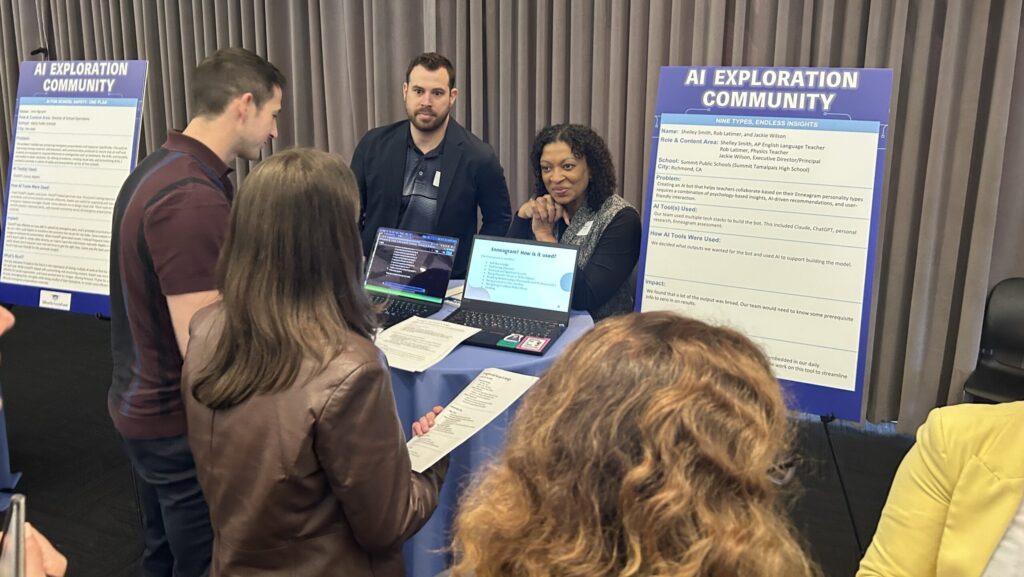How are educators engaging with AI to support teaching and learning? In partnership with the Silicon Schools Fund, CRPE studied 18 California schools that piloted AI tools to address core instructional challenges, including learning gaps, low engagement, time constraints, and behavioral issues.
Over 80 teachers and administrators participated in more than 30 pilots using both off-the-shelf and custom-built tools. This brief documents their experiences and lessons learned.
Key Findings:
- Given support, educators quickly learned to use AI tools and devised bold, creative ideas to tackle persistent education problems.
- If AI tools weren’t well aligned with an instructional vision, educators found limited success in achieving and sustaining the results they wanted.
- Educators in the cohort wanted AI to preserve, or even deepen, human relationships between teachers and students in schools.
- Some AI solutions saved time or made tasks easier, making educators feel “lighter.” But educators were more motivated by problem-solving than by efficiency for efficiency’s sake.
- Many educators were dissatisfied with current AI education tools, even after extensive experimentation.
This report captures an emerging picture of how educators are experimenting, iterating, and pushing the boundaries of how AI can support student learning—while preserving the human connections that matter most. Read the full report and learn more about how edtech developers, school leaders, and policymakers can support better integration of AI tools in schools.






